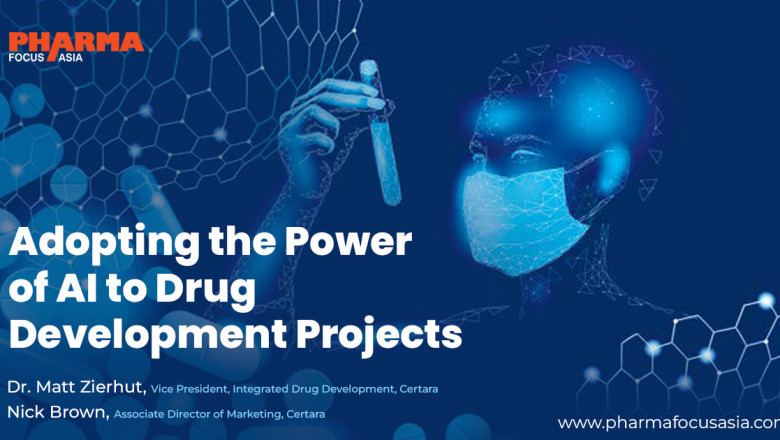views
AI Powered Drug Development | Transforming Clinical Trials

Nick: A tremendous amount of documentation is created throughout the clinical trial lifecycle. These documents include recruitment forms, trial summaries, scientific publications, clinical study reports, drug labels and post-marketing materials, all of which hold valuable data points that can influence future trials.
The challenge with these documents is that it’s incredibly time-consuming to review and extract relevant data points from this content. That’s where AI comes in. AI in the form of generative pre-trained transformers (GPTs) and large language models (LLMs) are uniquely adept at searching and “understanding” complex content.
By applying these AI models to clinical trial documents, researchers can accelerate screening and data extraction workflows, enabling them to collect highly relevant information in a format that complements their analytics needs. For example, at Certara.AI, we have a dataset creation tool that researchers use to take large corpuses of clinical trial documents and leverage AI to extract the relevant data points they need directly into a structured format. These newly structured datasets can then be used for expanding clinical outcome databases or fed into visualisation tools to run a variety of different analyses.
Nick: Just as LLMs and GPTs can be trained to “understand” language and then leveraged to analyse documents, they can also be trained on SMILES and SELFIES strings. SMILES and SELFIES are sequences of numbers and letters that represent molecules and, in simple terms, can be considered the “language of compounds.”
Models trained on SMILES or SELFIES can perform exciting tasks such as property prediction and de novo compound generation, which complement the existing analytics workflows of chemists and discovery scientists. For example, the Certara.AI team is collaborating closely with our colleagues in medicinal chemistry to develop these models. To date, we’ve successfully deployed models to help users predict the toxicity, blood-brain barrier permeability and lipophilicity of structures, which can enhance which molecular properties to prioritise. In addition, we have also made tremendous progress in models for de novo compound generation, which will deliver highly relevant structures to complement existing discovery workflows.
NICK: Flexibility, data access and model training are all factors organisations should consider when selecting a deep learning platform for R&D in life sciences. The AI landscape is rapidly evolving, so having a platform with the flexibility to handle multiple types of models will enable your team to shift as new innovative models hit the market. Secondly, data access will always be a challenge in AI. A platform that allows you to securely connect your internal data and apply AI models to those assets enables you to create an expansive environment for leveraging AI across multiple data types and teams within your organisation. Last, but certainly not least, is the base training of the AI models. In many cases, AI models are trained on broad datasets that enable an expansive but top-level understanding of concepts. At Certara.AI, we focus specifically on developing models that are trained specifically on life sciences content. This enables our customers to leverage these models with confidence, knowing that they understand the unique complexities of the life sciences industry.
Read more: https://www.pharmafocusasia.com/research-development/adopting-power-drug-development-projects






















Comments
0 comment